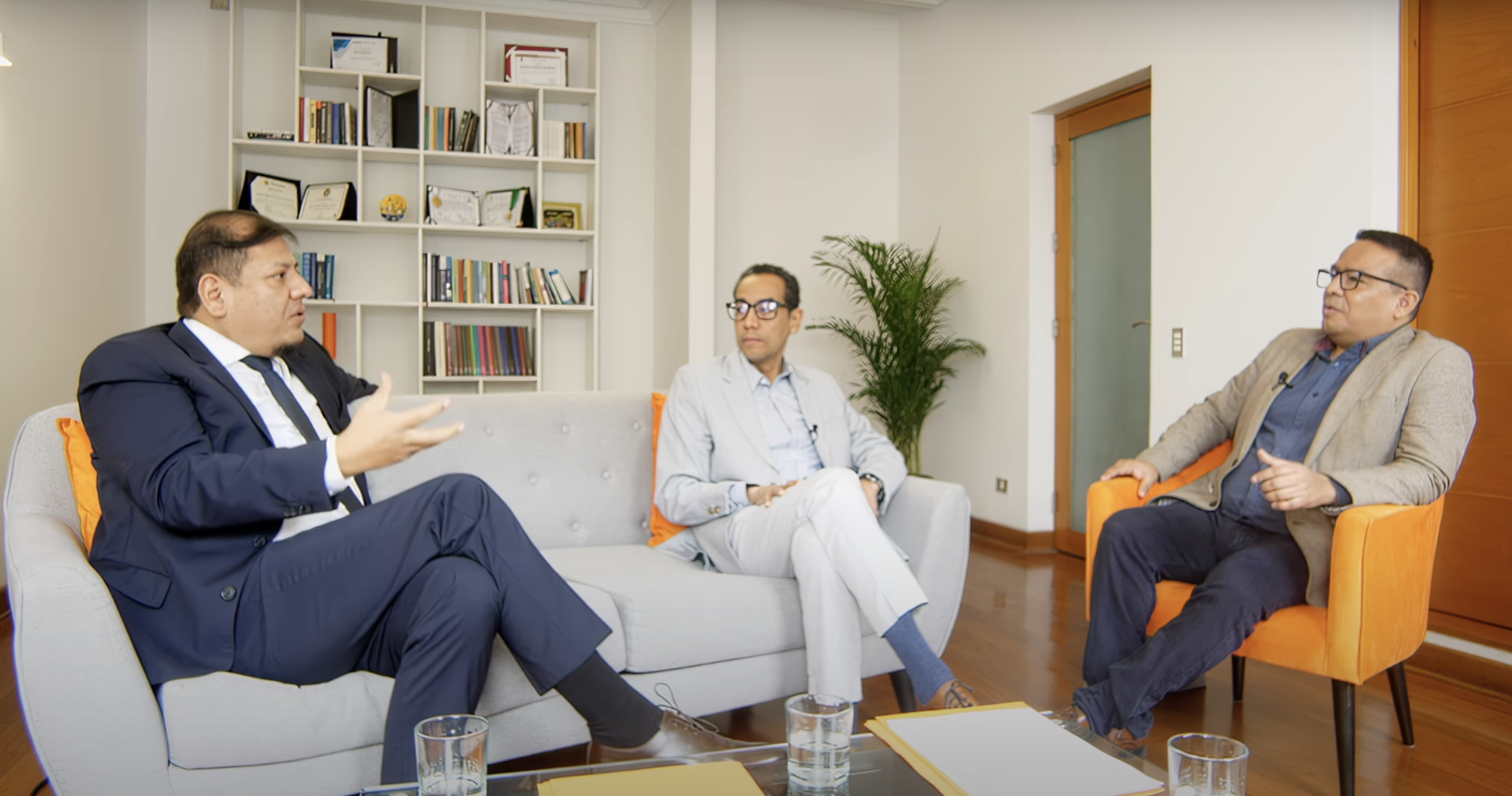Debating Peru's non-conviction forfeiture law: episode 1

Few disagree that asset recovery plays an important role in the fight against crime – but recovering assets in practice means balancing complex priorities and issues around justice, legality and human rights.
Starting today, our team of asset recovery experts in Latin America are releasing a series of recorded conversations that aim to provide asset recovery practitioners and policymakers with a clear understanding of the main issues of law and practice. The initial focus is on Peru and its non-conviction based forfeiture law Extinción de dominio, which enables the state to target criminal assets independently of criminal proceedings.
Extinción de dominio is a common model of non-conviction based forfeiture law in Latin America, but there have been challenges.
Three key arguments
In the first interview, Oscar Solórzano, Sergio Jimenez and Walther Delgado (moderator) explain the Extinción de dominio law's purpose and benefits, then tackle three arguments that are being used to undermine its legitimacy:
- That the law is unnecessary as Peru already has a mechanism to confiscate illicit assets through the penal code. The experts argue that states must have a legal mechanism that allows for confiscation without a criminal conviction, as a tool to combat the most serious forms of profit-making crime. Extinción de dominio has proven to be both effective and efficient as a complement to criminal law, with more than USD 94 million recovered so far.
- That the law is unconstitutional and violates human rights. The experts conclude that the Peruvian Extinción de dominio law complies with all relevant international human rights standards and contains all required procedural safeguards. Judicial controls will help mitigate the risk of its misuse.
- That the law is an anomaly compared to other countries. The experts highlight that an increasing number of countries have introduced non-conviction based forfeiture laws as a way to boost their ability to recover illicit assets and deter corruption and crime. The need to introduce such a law is also now enshrined in the Financial Action Task Force (FATF) Recommendations.
The series of conversations is an initiative of the International Centre for Asset Recovery (ICAR) of the Basel Institute on Governance. ICAR receives core funding from the Government of Jersey, the Principality of Liechtenstein, the Norwegian Agency for Development Cooperation, the Swiss Agency for Development and Cooperation, the UK Foreign, Commonwealth and Development Office and the UK Home Office.
Learn more
- Watch the full conversation on YouTube (in Spanish, but with auto-translation for the captions in multiple languages).
- See the full playlist (new videos are added regularly).
- See our recent working paper by Oscar Solórzano, which goes into more depth about some of the main issues: Targeting illicit wealth through non-conviction based forfeiture: Identifying human rights and other standards for Latin America
- Read a Q&A with Oscar Solórzano on a guide to good practices in non-conviction based forfeiture in Latin America that he developed for GAFILAT, the Latin American body of the FATF.


